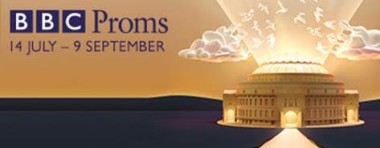
 United Kingdom 2017 BBC PROMS 43 – Falla, Lalo and Saint-Saëns: Stéphanie d’Oustrac (mezzo-soprano), Joshua Bell (violin), Cameron Carpenter (organ), Royal Philharmonic Orchestra / Charles Dutoit (conductor), Royal Albert Hall, London, 17.8.2017. (AS)
United Kingdom 2017 BBC PROMS 43 – Falla, Lalo and Saint-Saëns: Stéphanie d’Oustrac (mezzo-soprano), Joshua Bell (violin), Cameron Carpenter (organ), Royal Philharmonic Orchestra / Charles Dutoit (conductor), Royal Albert Hall, London, 17.8.2017. (AS)

(c) BBC/Chris Chistodoulou
Falla – El amor brujo
Lalo – Symphonie espagnole, Op. 21
Saint-Saëns – Symphony No. 3 in C minor, Op. 78, ‘Organ’
Who would have thought it possible that music by Lalo and Saint-Saëns would feature in two successive concerts during the 2017 Proms season? The second of these two concerts contained one each of their finest concert works: the Symphonie espagnole and the ‘Organ’ Symphony. But it was Falla’s ballet El amor brujo that formed the first item in this second concert – the entire 1925 one-act ballet of 13 numbers, that is to say, not the suite.
Charles Dutoit, now in his eighty-first year, is a vastly experienced exponent of Falla’s music, and his realisation of El amor brujo seemed ideal. Every tempo, every interpretative gesture, seemed just as it should be. It was perhaps a “French” reading, in the tradition created by Ernest Ansermet, with whom Dutoit studied, rather than a “Spanish” one, where conductors native to Spain have inserted heavier accents and more fluctuations of pulse and phrase in their performances. Stéphanie d’Oustrac, a great grand-niece of Poulenc, we were told, and making her Prom debut, sang with plenty of feeling and beauty of tone in her solo numbers, but her voice was simply not big enough to soar over Falla’s orchestration into the vast spaces of the Albert Hall. Listeners to the BBC Radio 3 relay will no doubt have experienced a more balanced sound with the aid of the engineers’ microphone placements.
In the case of Lalo’s Symphonie espagnole all one surely has to do is to sit back and let the delicious Spanish-flavoured music, with its gorgeous melodies, simply flow into you. The experience was made particularly pleasurable on this occasion by the playing of Joshua Bell, which had a lovely warmth of phrase, a charming exuberance, technical brilliance and great beauty of tone. Dutoit and the RPO proved to be exactly tuned to the soloist’s style of playing, and for the moment, at least, I couldn’t have imagined a better rendering of the piece.
The Saint-Saëns symphony has been one of Dutoit’s special works for a long time. Before the performance the Chairman of the Royal Philharmonic Society, John Gilhooly, presented Dutoit with the Society’s 103rd Gold Medal, a rare honour previously awarded to such musicians as Brahms and Stravinsky. When I last heard Dutoit conduct this work with the RPO in 2014 I had the feeling that he had played it once too often, but not on this occasion. No doubt inspired by the presentation of the medal he produced a most wonderful performance, tingling with vitality. Every section was perfectly paced, superbly pointed, and Dutoit presented the structure of this four-in-one movement with great clarity, so that not only was detail tellingly brought out, but the whole work emerged as a satisfying entity. Though he rendered the great chord at the beginning of the finale with suitable panache, Cameron Carpenter had clearly made careful preparation in rehearsal with Dutoit not to let the organ dominate orchestral textures, as can be the case with less disciplined performers.
Throughout the evening the RPO played very well indeed, with the silky warmth of the violin sections making a particular impression.
Alan Sanders
For more about the BBC Proms click here.